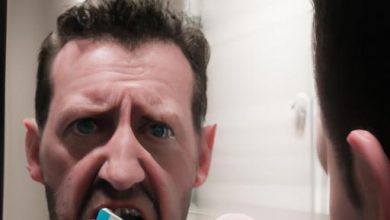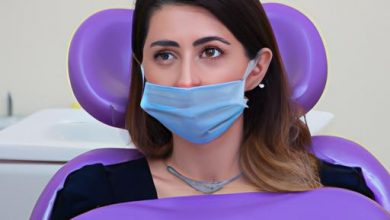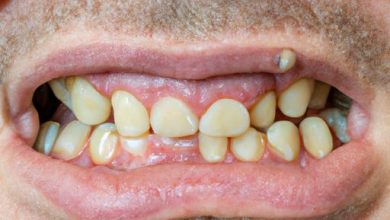How to cure gum disease without a dentist
Gum disease, also known as periodontal disease, is a common condition that affects the gums and the underlying bone structure supporting the teeth. While seeking professional dental care is essential for managing and treating gum disease, there are holistic approaches that individuals can incorporate into their oral care routine to support gum health. This article explores how to cure gum disease without a dentist, emphasizing the importance of maintaining good oral hygiene, adopting a healthy lifestyle, and leveraging natural remedies.
Understanding Gum Disease

Before delving into home remedies, it’s crucial to understand the stages and symptoms of gum disease. Gingivitis, the early stage, is characterized by red, swollen gums that may bleed during brushing. If left untreated, gingivitis can progress to periodontitis, marked by the formation of pockets between the teeth and gums, leading to bone and tooth loss.
How to cure gum disease without a dentist
Optimal Oral Hygiene: The foundation of gum disease prevention and management lies in maintaining optimal oral hygiene. This includes regular brushing, flossing, and the use of an antiseptic mouthwash. Brushing should be done at least twice a day, using a soft-bristled toothbrush to avoid damaging the gums. Flossing helps remove plaque and debris between teeth that brushing alone may miss. Additionally, an antiseptic mouthwash can reduce bacteria and promote overall gum health.
Saltwater Rinse: A simple yet effective home remedy involves rinsing the mouth with a saltwater solution. Saltwater has natural disinfectant properties and can help reduce inflammation. Mix a teaspoon of salt in a glass of warm water and rinse your mouth thoroughly. This can be done several times a day, especially after meals.
Oil Pulling: Oil pulling is an ancient Ayurvedic practice that involves swishing oil (commonly coconut or sesame oil) in the mouth for 15-20 minutes. This process is believed to reduce bacteria and toxins. After swishing, spit out the oil and rinse your mouth with warm water. Oil pulling can be incorporated into your daily routine before brushing.
Aloe Vera Gel: Aloe vera has anti-inflammatory and antimicrobial properties that can be beneficial for gum health. Apply a small amount of aloe vera gel to your gums and massage gently. Ensure that the gel is pure and free from additives. This can be done a few times a week.

Turmeric Paste: Turmeric, with its active compound curcumin, possesses anti-inflammatory and antioxidant properties. Make a paste by mixing turmeric powder with water and apply it to your gums. Allow it to sit for a few minutes before rinsing. Be cautious, as turmeric can stain clothing and surfaces.
Green Tea: Green tea contains antioxidants and anti-inflammatory compounds that can contribute to gum health. Regularly drinking green tea may help reduce inflammation and improve overall oral health. Aim for at least one to two cups daily.
Probiotics: Probiotics, commonly found in fermented foods like yogurt, kefir, and sauerkraut, can promote a healthy balance of bacteria in the mouth. Incorporating probiotic-rich foods into your diet may support gum health from within.
Vitamin C-Rich Diet: Vitamin C is essential for collagen formation and immune function. Include fruits and vegetables rich in vitamin C, such as oranges, strawberries, kiwi, and bell peppers, in your diet. This can help support gum tissue health.
Maintaining a Healthy Lifestyle: Adopting a healthy lifestyle can significantly contribute to gum disease prevention and management. Avoiding tobacco products, limiting alcohol consumption, and maintaining a balanced diet can positively impact overall oral health.
Stress Management: Chronic stress can contribute to inflammation and compromise the immune system, potentially affecting gum health. Incorporate stress-reducing activities such as meditation, yoga, or deep breathing exercises into your routine.
When to Seek Professional Help
While these home remedies can complement a holistic approach to gum disease management, it’s crucial to recognize when professional dental intervention is necessary. If you experience severe pain, persistent bleeding, or notice signs of advanced gum disease, such as receding gums or loose teeth, it’s imperative to consult with a dentist promptly. Professional cleanings, scaling, and in some cases, surgical interventions may be required to address advanced gum disease.
Potential Risks and Considerations

While many of the mentioned home remedies are generally considered safe, it’s essential to be aware of potential risks and considerations:
- Allergies and Sensitivities: Individuals may be allergic or sensitive to certain substances used in home remedies, such as aloe vera or specific essential oils. Before applying any new substance to your gums, perform a patch test to ensure you don’t have an adverse reaction.
- Staining: Some natural remedies, like turmeric, can stain teeth and clothing. If you are concerned about discoloration, it’s advisable to use such remedies sparingly and rinse thoroughly after application.
- Consistency and Patience: Achieving positive results with home remedies requires consistency and patience. Results may vary among individuals, and it’s essential to incorporate these practices into your routine over an extended period.
- Underlying Health Conditions: Gum disease can be linked to underlying health conditions such as diabetes or autoimmune disorders. If you have any health concerns, it’s crucial to consult with a healthcare professional to address the root causes of gum issues.
- Supplements: While a balanced diet is the best way to obtain essential nutrients, some individuals may consider vitamin or mineral supplements to support gum health. Consult with a healthcare professional before starting any new supplements to ensure they are appropriate for your specific needs.
Conclusion
Caring for gum health at home involves a combination of consistent oral hygiene practices, natural remedies, and a healthy lifestyle. While these approaches can contribute to gum disease prevention and support overall oral health, they should not replace regular dental check-ups and professional cleanings. Individuals should be proactive in their oral care, recognize the signs of gum disease, and seek professional help when needed. By adopting a comprehensive approach that integrates home care practices with professional dental care, individuals can work towards maintaining healthy gums and a vibrant smile.




